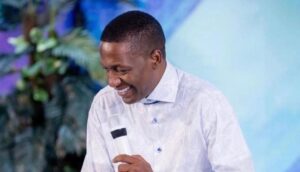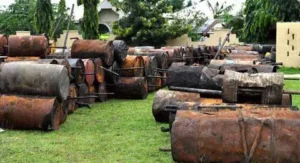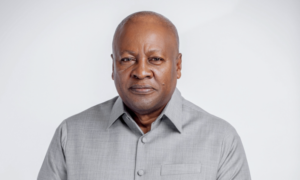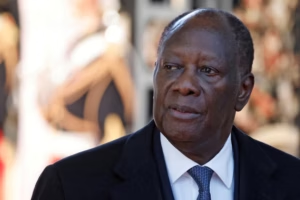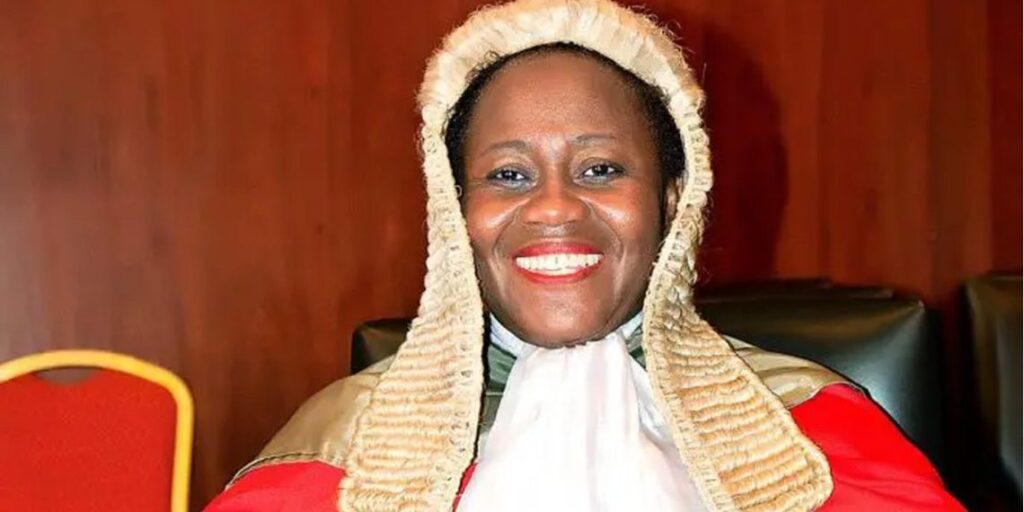
Supreme Court judge Gertrude Araba Esaaba Torkornoo is set to become Ghana’s 15th chief justice after a presidential announcement expected by the end of April barring any last-minute changes.
Justice Torkornoo, 60, will be the third woman to serve in the high office, following in the steps of Georgina Theodora Wood (2007 – 2017) and Sophia Akuffo (2017 – 2019) when she gets parliamentary approval.
She takes over from Kwasi Anin Yeboah who reaches the compulsory retirement age of 70 on 24 May after serving for three years.
Background lobbying, counsel from influential national figures and other lengthy meetings aided the president’s decision on Torkornoo.
Out of more than 10 potential chief justices, Torkornoo and Justice Emmanuel Yonny Kulendi, 59, were considered front-runners.
Head-to-head, both are held in high esteem in Ghana’s legal system and are in good stead to hold the office.
Torkornoo was called to the Bar in 1986, Kulendi in 1994. She joined the judicial service in 2004 and was appointed a Supreme Court judge in 2019, while he took office directly in 2020 as a Supreme Court judge.
Kulendi carries an impressive load of experience as a lawyer and is by many definitions a protégé of President Akufo-Addo, having undergone training at the president’s Akufo-Addo, Prempeh and Co. Chambers and later became an associate barrister and solicitor before setting up his own firm.
The odds have fallen in favour of Torkonoo on the account of her systematic rise within the judicial ranks, longevity at the Bar, and excellent track record.
Humble beginnings
Born on 11 September 1962 in Cape Coast, 150km west of Accra, she attended A-list Wesley Girls’ High School and Achimota School for secondary education before acquiring her bachelor’s degree in Law & Sociology at the University of Ghana.
Her professional law career started at Fugar & Co, where she later became an associate and then a director of the firm.
In 1997 she co-founded Sozo Law Consult and became the managing partner.
After 18 years of legal practice, she was appointed to the judicial service to be a justice of the High Court in 2004 under then-president John Agyekum Kufuor (NPP).
She was later promoted to the Appeals Court in 2012.
Among the famous cases she dealt with at the court was a case between sacked high court judge Paul Dery and investigative journalist Anas Aremeyaw Anas in the aftermath of Anas’ judicial corruption investigation that indicted the ex-judge.
With only a few of her colleagues getting to experience such a meteoric yet systematic rise, she became an influential voice on the bench.
In 2021, Tokornoo was part of the 7-member jury that adjudicated the controversial election petition that upheld Nana Akufo-Addo’s presidential victory over the NDC’s John Mahama.
Christian leader
Torkornoo is an avowed Christian and known to be a member of the International Central Gospel Church, one of Ghana’s largest evangelical charismatic churches.
She has been featured on several of the church’s programmes, speaking at different branches of the church across the country.
Torkornoo serves on the governing council of Central University – a university affiliated with the church as a member.
She is also a long-standing board member of Theovision International, a Christian non-profit that produces audio bibles in different indigenous languages across Africa.
Her legal activities have almost eclipsed her creative writing but she is a poet and a playwright with two books to her credit – The Child and the Rainbow: Poems Celebrating Heavens Journey and The Wise Still Hear the Birds: Poems from an African Soul.
Firm stance
Justice Torkornoo’s life in public service has largely been without controversy.
The soft-spoken yet firm judge however has views on some controversial subject matters in Ghana’s judicial setup like the wearing of wigs and gowns by judges, capping off the number of judges appointed to the Supreme Court and accepting gifts as judges.
She holds a strong view against judges receiving gifts, even from their children or close relatives to prevent corruption within the judiciary.
During her vetting in 2019 upon nomination to the Supreme Court, she said she was open to the idea of Ghana doing away with wigs and gowns worn by judges – a colonial relic but also subscribes to the view that they help to protect judges especially when adjudicating criminal matters.
“When I was in the high court there was a directive that we could stop robing when sitting on civil matters but on criminal matters you must robe and the explanation for that is, in the criminal jurisdiction you are exposed so much,†she said.
“Many people find it difficult to recognise the judge when your wig is off so it is a good disguise but I agree that when there is no air conditioner or the air not blowing properly, it is a difficult position to be in, wearing a wig, gown and the bib… I wish we could even wear African print rather than black suits,†she added.
Ghana’s Constitution stipulates that a minimum of nine judges serve on the Supreme Court. The bench is currently made up of 16 judges. President Akufo-Addo has made 15 appointments to the Supreme Court since he assumed office in 2017, sparking calls for a constitutional review to cap the number of justices at the apex court.
But Torkornoo does not subscribe to a capping. She says the work of Supreme Court judges is enormous and in the event of major cases like an election petition that needs at least nine judges, additional judges will be required to attend to other cases at the apex court.
Should there be a cap on the number, those cases may need to be suspended until the petition is completed.
As someone who strongly advocates for reform in Ghana’s legal education to train barristers and solicitors distinctively, it is expected that her time as chief justice will influence that change.

